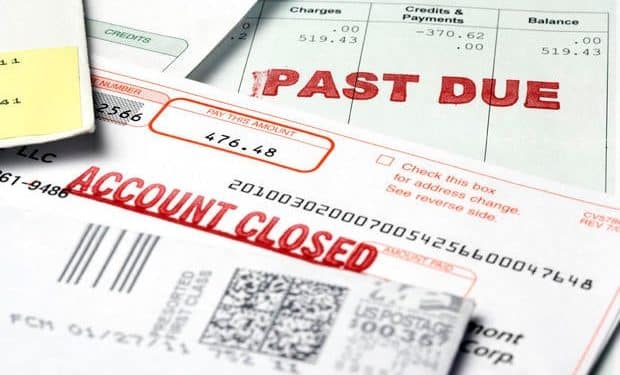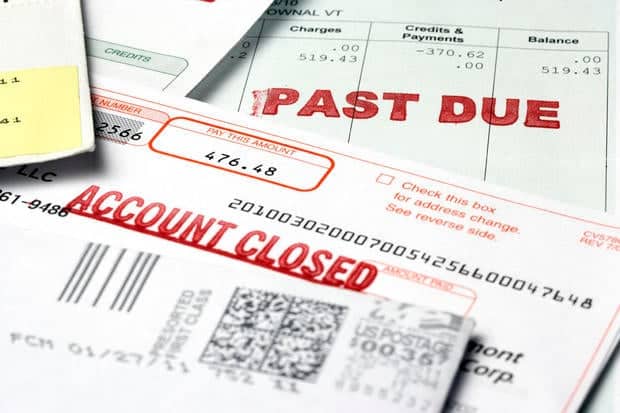Getty Images/iStockphoto
Having debt in collections is an unfortunate reality for millions of Americans — especially those who are struggling with unexpected financial hardships. But while facing a debt collection issue may be common, it can also have a big impact on your finances, and receiving calls, letters or lawsuit threats from debt collectors can also be a significant source of stress. After all, while debt collectors may start the process with less aggressive tactics, if you’re unwilling or unable to pay off what you owe, it could lead to harassment or unfair treatment over time.
But what you may not realize is that while debt collectors are legally permitted to seek repayment from you on behalf of creditors, there are strict rules in place to prevent them from using abusive, deceptive or unfair practices. The Fair Debt Collection Practices Act (FDCPA) outlines guidelines that regulate the actions of debt collectors and safeguard consumers against mistreatment, and understanding your rights is critical in navigating these situations and protecting yourself from unlawful behavior.
Despite these protections being in place, though, many people are unaware of what exactly debt collectors can and cannot do during the debt collection process. By becoming familiar with the boundaries debt collectors must adhere to, you can confidently address collection attempts and ensure your rights are respected.
Find out how to start tackling your old credit card debt today.
8 things debt collectors can’t do
Not sure what tactics debt collectors can use during the collections process? Here are some of the key actions that debt collectors are prohibited from taking.
Contacting you at inconvenient times
Debt collectors are prohibited from contacting you at times they know are inconvenient. Under the FDCPA, collectors cannot call you before 8 a.m. or after 9 p.m. local time unless you’ve explicitly given permission for them to do so. If you inform them that you cannot receive calls at work, they must also stop calling you there. This protection ensures that debt collection activities don’t interfere with your work or personal life at unreasonable hours. If a debt collector violates this rule, you have the right to report them to the Consumer Financial Protection Bureau (CFPB).
Explore your debt relief options and speak to a debt relief expert now.
Harassing or abusing you
Debt collectors are strictly forbidden from using harassing, oppressive or abusive practices to collect a debt. This includes using threats of violence, using obscene language or repeatedly calling to annoy you. These protections ensure that collection practices remain professional and respectful. They cannot publish your name as someone who refuses to pay debts (except to credit reporting agencies) or use any other methods designed to embarrass you. The FDCPA explicitly prohibits these actions to ensure that the collection process remains professional and non-threatening.
Making false or misleading statements
A debt collector cannot lie or use deceptive practices to collect a debt. They cannot falsely claim to be attorneys or government representatives, misrepresent the amount you owe, falsely claim you’ve committed a crime or threaten legal action they cannot or do not intend to take. This ensures that you can make informed decisions about your debts based on accurate information.
Contacting you after you’ve requested they stop
You have the right to request a debt collector stop contacting you, and they must honor this request. Once you send a written cease-and-desist letter, the collector can only contact you to confirm they will no longer communicate or to notify you of specific actions, such as filing a lawsuit. This rule empowers you to end persistent communication that may feel intrusive or overwhelming.
Discussing your debt with third parties
Privacy is a fundamental right in debt collection. Debt collectors are prohibited from sharing information about your debt with anyone other than you, your spouse or your attorney. They cannot contact your employer, friends or family members to discuss your debt. The only exception is if they are trying to locate you, in which case they can ask a third party for your contact information but cannot reveal the purpose of their inquiry.
Threatening illegal actions
Debt collectors cannot threaten to take actions that are illegal or that they do not intend to follow through on. For instance, can a debt collector sue you or threaten to sue you? They can, but they cannot do things like threaten to garnish your wages without obtaining a court judgment, nor can they threaten to seize property that is legally exempt from seizure. These types of threats are designed to intimidate you and are explicitly forbidden under the FDCPA.
Failing to provide debt verification
If you request verification of a debt, the debt collector must provide written proof that the debt is valid and belongs to you. Until they do so, they must cease collection activities. This rule is particularly important if you suspect the debt is not yours, has already been paid or has exceeded the statute of limitations, which is the legal time limit in which the debt can be collected on.
Ignoring your rights under state laws
In addition to federal protections, many states have their own debt collection laws that provide additional safeguards. For example, some states impose stricter limits on the types of debts that can be collected or offer broader protections against harassment. Debt collectors must comply with both federal and state laws, and ignoring state-specific regulations is a violation of your rights.
The bottom line
By knowing what debt collectors can’t do, you can better protect yourself and focus on resolving your financial challenges without unnecessary stress or intimidation. Understanding these restrictions empowers you to take control of your financial situation and respond effectively to unlawful behavior. If you believe a debt collector has violated your rights, document all interactions, save relevant correspondence and file a complaint with the CFPB, your state attorney general or a consumer protection agency. With the right knowledge and tools, you can address your debt responsibly and move toward a more secure financial future.












